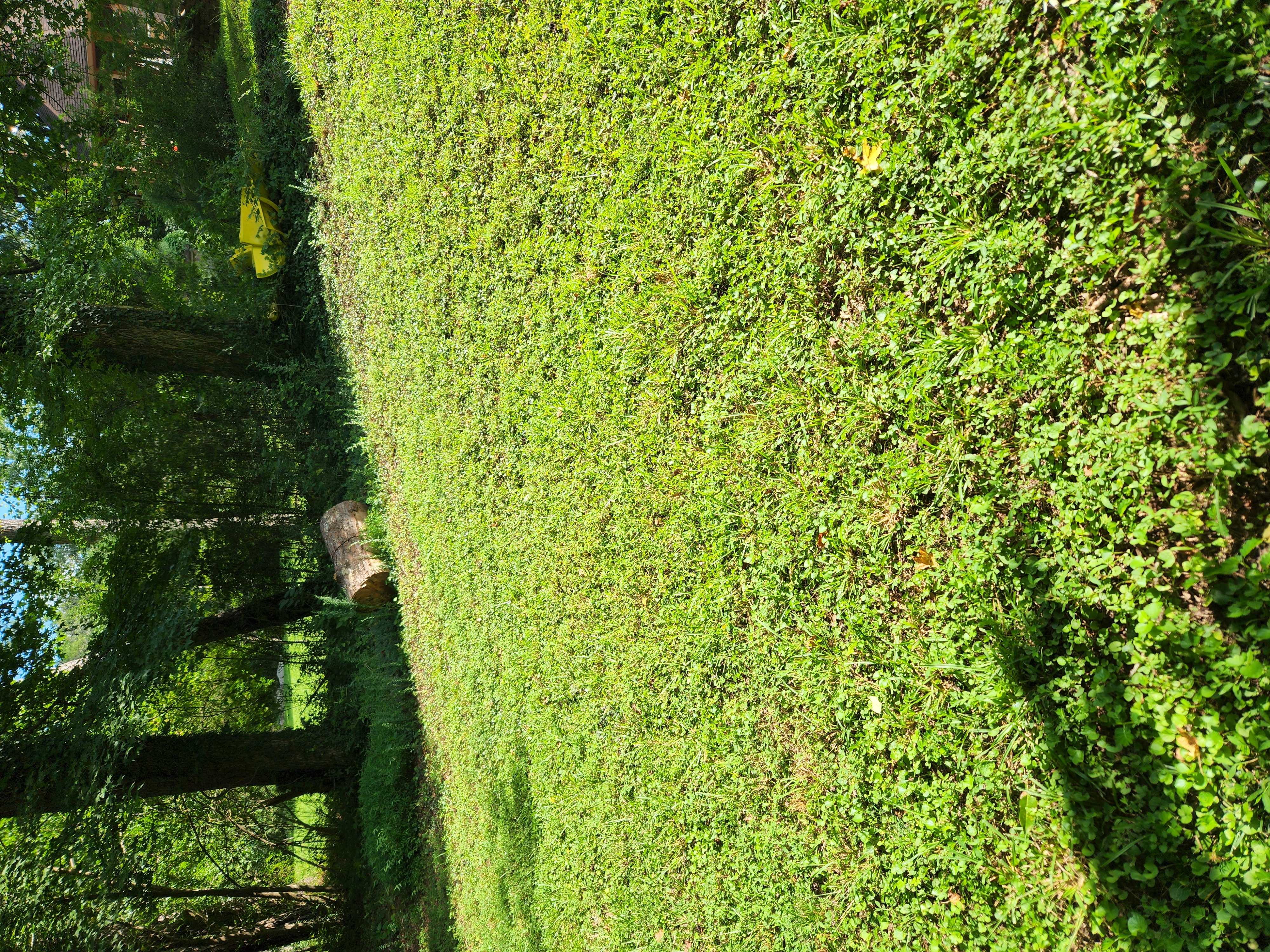Emphasizing interdependence in order to make the world a better place
Ministry of interdependence
Make the world a better place: Challenging the current cultural concept of individualism and self-sufficiency. Practicing empathy and learning about different cultures can have a significant impact on the world. Showing empathy can be as simple as listening to others without judgment and give them your full attention when they speak. Connect with others by learning about their culture, faith, and help people to foster a greater understanding about each other.
Be an advocate for issues you care about. Work on developing empathy and a more positive outlook, but challenge negative thoughts, negative thinking and negative conversations. Explore the world to broaden your perspective, such as Learning a new language, and studying history. Be present by engaging with the real world and spend less time on digital devices - be a role model.
The Ministry of interdependence is a concept emphasizing mutual reliance and connection within the community, and even the entire world, rather than individual self-reliance. It is often discussed in many faith-based organizations which honors the "interdependent web of all existence", and see society as a whole body with people as different parts of society, needing each other in order to function. This concept promotes a healthy, and a balanced community where diverse gifts are valued, and everyone is expected to contribute to the well-being of the whole.
The Key Aspects of Interdependence Ministry
One of the key aspects of Interdependence Ministry is to go Beyond Individualism: This concept challenges the current cultural emphasis of individualism and self-sufficiency. This ministry highlights the benefits of communal support and collaboration for spiritual and personal growth. Unlike the one-sided reliance of simple dependence, we opt for the mutual reliance of interdependence: a mutual relationship where all parties of the community rely on each other. Because we recognize that everyone brings different gifts and abilities to the community. Each person's diverse Gifts provides a necessary contribution that is of value to society for grow and to achieve purpose for all citizens.
Another key aspects of Interdependence Ministry is Covenantal Relationships. Covenantal describes the fact that we are in a covenant, an agreement, solemn promise, an enduring relationship, with reciprocal rights, responsibilities, and mutual accountability to each other and to the Higher Power of the Cosmos. This is a spiritual path which centers on our interdependent web of existence. This is the core value that guides our actions, especially concerning the stewardship of the earth and its ecosystem. Without the healthy ecosystem, humanity would cease to exist. We seek practical ways of building relationships and empowering people for a better life.
Dr. ML King, Jr. used the phrase "this is the interrelated structure of reality" to express his core belief that "all mankind is tied together; all life is interrelated, and we are all caught in an inescapable network of mutuality, tied in a single garment of identity". He stated that whatever affects one person directly affects all others indirectly, emphasizing that an individual cannot achieve their full potential unless others do too, because their fates are interconnected within this shared reality.
"All I'm saying is simply this: that all mankind is tied together; all life is interrelated, and we are all caught in an inescapable network of mutuality, tied in a single garment of identity. Whatever affects one directly, affects all indirectly. For some strange reason I can never be what I ought to be until you are what you ought to be. And you can never be what I ought to be until I am what I ought to be - this is the interrelated structure of reality." -- Martin Luther King, Jr.
 Wooded Area with Elephant ears plants
Wooded Area with Elephant ears plantsThe joy of Interdependence
I love to take walks through nature. I like a good forest but a walk in the park works also. The sound of birds chirping, or the sight of of wild flowers or the sight of a beautiful sunset usually bring peace of mind.
Spending time connecting with friends and loved ones, sharing a laugh with other people, or just receiving a kind message, goes a long ways towards filling life with joy.
Enjoying delicious Food, listening to favorite songs, or discovering new artists can bring a lot of joy to your life. And, if you can play an instrument - that adds an abondance of joy to the gathering of friends and family.
Moments of Calm when you are alone. Find time to enjoy a quiet morning - read a good book or simply practice mindfulness. Or, engage in your hobbies. Engaging in a favorite pastime for me is gardning. I also like to take time to learn new things, or complete an old project.
Great Spirit: Wakan Tanka and Interdependence
Wakan Tanka, Great Spirit in English, is the central principle, known as Mitákuye Oyásʼiŋ, to the Lakota Nations. Wakan Tanka is the universal life force which provides guidance and strength to the people. In Lakota spirituality, the Great Spirit is the source of all existence. It embodies the fundamental principle of interdependence. The Lakota Nations understand that all living things are unified by a single life force, that all are related to each other. Thus, Wakan Tanka is viewed as a collective (or oneness), unifying everything, as this life force is present in the rocks, the trees, the animals, the wind, and in the humans. All things are sacred and kindred because we all come from the same Source.
Because nature is imbued with the sacred life force, the earth and other people, and the animals, are part of one big extended family. The earth is our mother and the sky is our father. Therefore, this kinship comes with the responsibility to maintain harmony and balance between humans, animals and nature. The ceremonies preformed in honoring the earth, the seasonal changes, and all living things, are central to reminding us that we need to maintain the harmony and balance of nature. Like most indigenous cultures, these views were developed based on many generations of observation and interaction with their environment.
The universal life force, Wakan Tanka, provides spiritual guidance in relationships. This relationship goes beyond just humans, and also include our relationship with nature, thus, shaping our sense of moral values and how we understand our existence. Due to the fact that everything is holy (wakȟáŋ), everything is treated with reverence and respect. This sacred spiritual essence, or power, is attributed to all aspects of nature, i.e. nature is holy, unified, and share interdependence.
Buddhism and Interdependence
There is the concept in Buddhism that no phenomenon exists independently. Pratītyasamutpāda (dependent origination), teaches that everything arises from a complex web of causes and conditions which are interconnected and mutually influencing. This Buddhist concept explains that all phenomena, including suffering and happiness, arise from this complex chain of interdependent causes and conditions.
The goal of this Buddhist practice is to stop the cycle of suffering by understanding 'dependent origination' and interrupting its links in the cycle of ignorance -- leading to birth, aging, and death, which is the process that perpetuates the cycle of suffering. The liberation from the cycle of rebirth can be obtained by cultivating wisdom and non-attachment. This allow practitioners to weaken the links of craving and clinging which leads to a cessation of suffering.
Dependent Origination (Pratītyasamutpāda), has twelve links which forms a sequential chain showing how suffering arises and can be overcome.
The first link in the chain is (Avidyā) Ignorance. This is the lack of understanding the true nature of reality which leads to unwholesome actions and thoughts. Causality: We have to understand that events are not random, that they are the result of prior causes and conditions. This process can be understood and influenced through mindful actions, such as Analytical Meditation. When we engage in contemplation, we break down the idea of an independent self and recognize the many relationships that constitute your experience.
The second link is (Saṃskāra) Mental Formations. Often times we form mental concepts, intentions, and volitions (deliberate choices or decisions), due to ignorance. Can there be a capacity for free will, allowing someone to choose a course of action, or to be responsible for their choices, often without external influence? There is No Independent Self. The concept of an independent "self" is a myth, as every person's existence is dependent on their family, culture, environment, and interactions with others. The spiritual insight of recognizing interdependence helps us to dispel the delusion of being an independent self, which is a source of (dukkha) suffering.
 Caterpiller on heavenly trumpet plant
Caterpiller on heavenly trumpet plantConsciousness (Vijñāna), is the awareness that arises and is conditioned by the previous links of (Pratītyasamutpāda) dependent origination. Cultivate Mindfulness, become aware of the continuous process of co-arising and the multitude of causes and conditions which are influencing your thoughts, feelings, and experiences in life. Observe Nature and reflect on the natural phenomena, such as the caterpiller, or the growth of a plant, observe the intricate connections and conditions required for their (our) existence. Ecological awareness fosters a deep respect for the environment and a sense of responsibility for all beings. Recognize that the welfare of humanity is intertwined with the welfare of the planet and all living creatures.
Interdependence provide us with a framework by which we can understand non-duality, that is to become aware of the relative and absolute truths that we are not separate entities but are unified. Understanding that all beings are interconnected, naturally leads to our ability to cultivate a greater sense of empathy, love, and compassion for others, as our well-being is intrinsically linked to each other.
The other aspects of Pratītyasamutpāda (dependent origination), are (Nāmarūpa) Name and Form. This is the mental and physical components that constitute a sentient being, such as the mind and body. (Ṣaḍāyatana), the Six Senses of seeing, hearing, smelling, tasting, touching, and thinking. Next we have (Sparśa) or Contact, the interaction between the sense faculty, its object, and consciousness. Which leads to (Vedanā), the Feeling, be it pleasant, unpleasant, or neutral sensations that arise from contact. Then comes (Tṛṣṇā), the craving desire to experience pleasant feelings or avoid unpleasant ones, which arises from feeling (Vedanā). Then, there is that stronger form of craving (Clinging (Upādāna)) that leads to attachment and grasping.
Fueled by clinging, we have (Bhava) Becoming, the process of existence or the potential for future lives. Which leads to (Jāti) Birth, the arising of a new life, which carries the potential for future suffering. And (Jarāmaraṇa) Aging and Death, the inevitable results of birth, including sorrow, distress, and despair. And, the cycle starts over again, until we receive liberation from the cycle of rebirth.
Interdependence in Ma'at
Maat is the central concept of rightness in ancient Egyptian culture. It embodies truth, justice, harmony, balance, and order. This is seen as fundamental to the universe and to human conduct. This truth is expressed in a clear, tangible, and obvious way, through its actions, nature, or character rather than just words.
The interdependence of Ma'at's principles are total and inseparable. Thus, Ma'at is an all-encompassing force that integrated every aspect of the universe, society, and the individual. This allowed the ancient Egyptians to build a social order which ws a reflection of the holistic nature of the cosmic order. The Egyptians saw in Ma'at, core principles, such as truth, justice, balance, and harmony, which are mutually dependent. A deficit in one would destabilize the entire system.
Ma'at ruled the natural cycles of the universe such as the seasons, the movement of the stars and the social order of human civilization. This Cosmic and earthly balance are directly linked to each other. Take for example, the successful annual flooding of the Nile which was essential for agriculture and survival, this was seen as a result of maintaining Ma'at in the society. Egypt's prosperity was directly connected to the Leaders and the people, upholding the principles of truth and justice, and the cosmic order.
The unified and indivisible "seven principles" of Ma'at, i.e. truth, justice, harmony, balance, order, reciprocity, and propriety, were seen as interdependence. (Ma'at) required one to be fair and just in order to act with truth. Order and balance was required to achieve justice. Harmony is a direct result of reciprocity and propriety in all relationships. The act of disrupting one principle would inevitably damage the other principles.
The Forces of the Cosmos were seen as upholding Ma'at, this brought order from the primordial chaos, and humans were responsible for aiding in this continuous effort. The pharaoh, in particular, was charged with maintaining Ma'at on Earth. This act was not merely symbolic, as it was essential to sustain the interdependent relationship between the divine Cosmic realm and the earthly realms, i.e. interdependence of humans with the Cosmic Forces. Thus, Ma'at is the underlying, indispensable support system for all of creation.
 Men of Valor cup
Men of Valor cup
Interdependence and Vodun
Interdependence is a foundational concept of Vodun. It describes the deep, reciprocal relationships that connect all of the parts of the cosmos with each other. The worldview of Vodun sees the entire universe, including the divine, the natural world, the living, and those who have past on, as a continuous and interconnected whole. The living and the spirits of the ancestors are in constant interaction. Our ancestors are part of the spirit world (Ginen) and serve to keep us, the living, grounded in our history and traditions.
Vodun is built on the relationship of mutual service between humans and the lwa, the powerful spirits (vodun), who serve as intermediaries with the supreme creator, Bondye. Humans serve the lwa through offerings, songs, and dances to honor the spirits and in return, we receive guidance and help from the spirits. Lwa serve humans as they communicate directly with the community. They, the spirit offers counsel, protection, healing, and helps affirm both the community and the spirits themselves.
Nature is revered as sacred, and all beings, both living and non-living, are seen as an interconnected part of the whole. Natural phenomena and places, nature, is infused with spirit, and are believed to be the dwelling places of those spirits. Thus, we can use the elements of nature, such as plants, rivers, and the earth, to honor and communicate with the spirits. For example, certain trees, forests, and bodies of water are sacred.
Vodun is centered on community and family life. Ceremonies that involve collective activities like drumming, dancing, and singing, serves to bind the community and reinforce its shared values. Spiritual knowledge and practices are passed down through family elders, and ancestral spirits are tied to specific lineages. Therefore, Vodun is often practiced by the extended families.
Ultimately, when you and your family get together to sing and dance to honor your ancestors and recall family history, you are practicing Vodun. This principle of interdependence upholds Vodun's ethical framework, and emphasizes the need for balanced and reciprocal relationships to maintain cosmic harmony within the family. The moral life in Vodun is one that honors these intricate family connections with the Divine and works to strengthen them.
 Wooded Nature
Wooded Nature